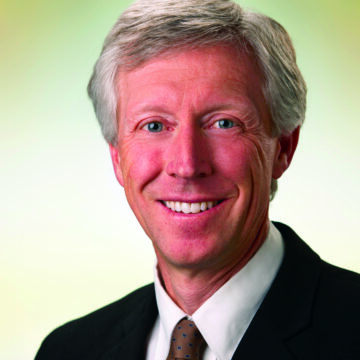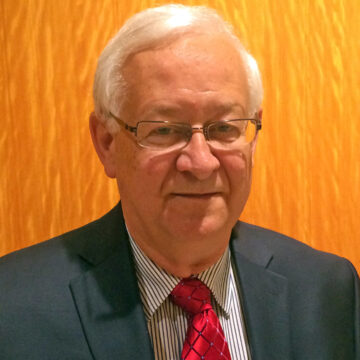
Opioid Prescribing: Replacing the Contract with Conversation for Better Outcomes
Tuesday, December 5, 2023
Many health systems use “contracts” with patients as part of opioid prescribing for pain management, presenting the risks and asking patients to agree to such things as urine drug screening and showing pill usage. However, growing literature points toward the effectiveness of shared decision-making conversations over contracts. This shift from contracts to working with patients to understand their options is seen as a better way to help them make decisions based on informed consent.
The Minnesota Shared Decision Making Collaborative, Stratis Health, the Minnesota Medical Association (MMA), and the Minnesota Academy of Family Physicians (MAFP) are collaborating to co-convene the no-cost session: Opioid Prescribing: Replacing the Contract with Conversation for Better Outcomes. This event is part of the MMA Physician Forum Series – opportunities over the lunch hour to stay updated on the latest news, information, and resources on important topics affecting the practice of medicine.
This session will share and demonstrate evidence-based alternative approaches to help you answer the question, “Is it time to get rid of the opioid patient contract?”
The session will include:
- A summary of the evidence.
- An example of how a Minnesota health system has shifted away from patient contracts for opioid prescribing.
- A patient role-play in how the conversation approach would look and feel.
- Discussion of alternative approaches to a contract and how to “replace the contract with conversation.”
- Opportunity for participant Q&A
Register
- Visit the registration page.
- Enter the information as prompted.
- You will receive a confirmation email.
Note: This confirmation email may go to your spam or junk folder.
Faculty and Presenters
 Kurt DeVine MD, FASAM
Kurt DeVine MD, FASAM
Dr. DeVine began his Family Medicine career in a rural community in central Minnesota in 1990. After 25 years in Family Medicine, his career path changed in 2015 after he and a colleague developed a rural clinic and community model to address opioid prescribing and lack of access to medication-assisted treatment for opioid use disorder. Funding from the Minnesota Department of Health has allowed this model to be implemented in 12 other rural Minnesota communities. In 2018, Dr. DeVine began a weekly opioid and addiction telehealth teaching program through Project ECHO, bringing weekly addiction information to rural community providers to improve care for patients with substance use disorders. Similar projects were launched to target Medical and PA students who were in programs that emphasized care to rural and underserved communities and facilitated by Dr. DeVine and a colleague. Grant funding for these programs and new projects is managed through Stratis Health, where Dr. DeVine is a subject matter expert on grants relating to rural addiction care, opioid prescribing, and addiction care in correctional facilities. He has also been involved at the state level regarding opioid issues, serving on the Opioid Prescribing Work Group to develop state guidelines. Currently, he sits on a DHS Pain Waiver Advisory Panel. Dr. DeVine is board-certified in Addiction Medicine. In 2022, he joined the CentraCare organization and became one of two providers in the Addiction Services Clinic. Past awards related to this work include the American Hospital Association Nova Award, the 2020 Minnesota Medical Association Presidents Award, and the 2021 Family Physician of the Year Award.
Joe  Bianco, MD
Bianco, MD
Joseph Bianco is a board-certified family practice physician with Essentia Health, an integrated health system that serves northern Wisconsin, Minnesota, and Western North Dakota. He has served as the director of Primary Care for Essentia Health as well as the Director of the Opioid Stewardship Committee. He is Chairman of the Board for Minnesota Community Measurement. He is an Associate Professor at the UMD School of Medicine, and he has a long-standing interest in the education of medical students. Dr. Bianco was raised in northeast Minnesota, attended the University of Minnesota School of Medicine, and completed a family practice residency in Duluth, Minnesota. Dr. Bianco maintains a busy family practice in the small rural town of Ely, Minnesota.
 Bill Adams, Patient Advocate
Bill Adams, Patient Advocate
Bill Adams has worked in public policy most of his adult life, including health care policy. After a heart attack, public policy became personal, and he joined the Patient Advisory Council at the Institute for Clinical Systems Improvement. Since then, Bill has been involved with a range of patient-centered health care initiatives and has presented on shared-decision making, the patient experience and engaging communities in creating health to local and national audiences. He has been involved with a range of health care measurement and research initiatives through the Minnesota Department of Health, Centers for Medicare and Medicaid Services, the American Medical Association, Minnesota Community Measures, and the Patient-Centered Outcomes Institute (PCORI). Bill is currently part of a PCORI-funded project to help researchers increase diversity and inclusion in their health research. Bill serves as a Patient Revolution Fellow, working with Victor Montori and a group of international Fellows to help bring about careful and kind care for all. He is on the Patient Family Advisors Network Advisory Board, American Board of Internal Medicine Foundation Patient Advisory Committee, Minnesota Alliance for Patient Safety, and Minnesota Shared Decision-Making Collaborative. Bill earned his BA in history, English, and philosophy from Macalester College. He did graduate work at the University of Minnesota in the College of Business Administration and Department of South Asian Languages. Bill and his wife, Ginny, reside in West Central Minnesota. They have six adult children and nine granddaughters.
Continuing Medical Education
The Minnesota Medical Association (MMA) is accredited by the Accreditation Council for Continuing Medical Education to provide continuing medical education for physicians.
The Minnesota Medical Association designates this live activity for a maximum of 1 AMA PRA Category 1 Credit(s)™. Physicians should claim only the credit commensurate with the extent of their participation in the activity.
Disclosures – The members of the faculty and planning committee for these activities have indicated that they have no relevant financial relationships to disclose related to the content of the CME activity.
